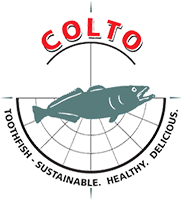The Coalition of Legal Toothfish Operators, COLTO, today responded to the many inaccuracies in a recent article, ‘NZ toothfish exports face boycott in North America‘.
The article by Michael Field, highlights a four year old decision by Safeway Canada to not sell Antarctic toothfish (aka Chilean seabass) if it came from the Ross Sea, based on support for a Marine Protected Area in the region.
This is despite the fact that Ross Sea toothfish is sustainably managed by 25 member Countries, including New Zealand, through the Commission for Conservation of Antarctic Marine Living Resources, CCAMLR.
Ross Sea toothfish management and stock status has been independently verified by international scientists from the Marine Stewardship Council, and the Monterey Bay Aquarium Seafood Watch Program. Both scientific reviews recognised the Ross Sea fishery as sustainable.
Martin Exel, Chair of COLTO, said he believed Safeway made a choice in 2011 to not stock Ross Sea toothfish in an attempt to influence CCAMLR policy on Marine Protected Areas. That ‘value judgement’ has nothing to do with sustainable toothfish fishing, which is clearly happening in the region, he said.
He went on to say that, contrary to the article and impressions left by Michael Field, New Zealand operators catch around a quarter of the total allowable catch, and all do so under the strictest license conditions and controls. That includes carrying two independent government observers on every trip, and extensive research requirements and monitoring of the fishing activities.
Also unsaid in the article, is that over 60% of the Ross Sea is already closed by CCAMLR as non-fishing regions.
Mr Exel suggested that readers carefully review the facts on Ross Sea toothfish from independent scientific organisations and CCAMLR, before deciding on campaigns aimed to close the entire region.
More information:
Contacts:
Martin Exel (Hobart, Tasmania) +61 413 595 532
Jack Fenaughty (New Zealand) +64 274 498 170
COLTO:
COLTO represents fishing operators, who catch over 90% of the global catch of toothfish. They are strong supporters of sustainable, legal management of toothfish fisheries and work closely with governments, conservation groups, scientists and CCAMLR to ensure that toothfish stocks are healthy and sustainable.
